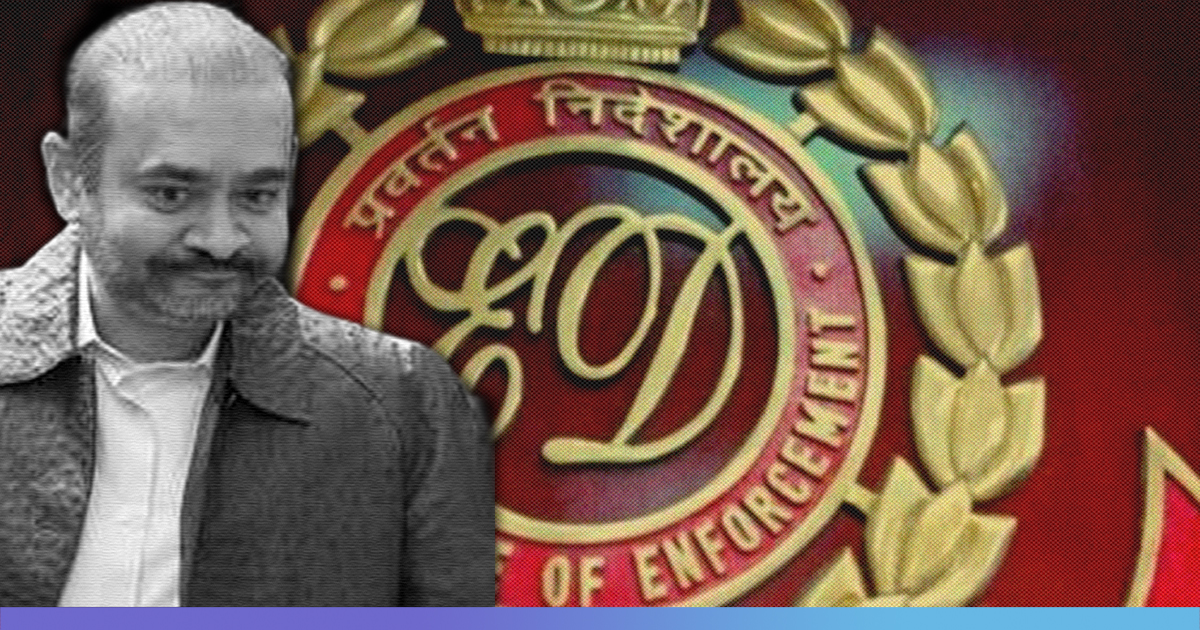The government, on April 16, has removed the Enforcement Directorate’s special director in Mumbai Vineet Agarwal. Officials said that this was because of his alleged interference in relieving the ED’s investigating officer in the Nirav Modi money-laundering case without following due procedure. Reportedly, Agarwal was sent to Mumbai on deputation in January 2017 for five years by the central government.
Enforcement Directorate’s Mumbai chief #VineetAgarwal ousted over Nirav Modi case row pic.twitter.com/3F9MNcEWUx
— Talented India (@talentednews) April 17, 2019
Why was he removed?
According to The Wire, the officials stated that Agarwal’s tenure has been cut short by three years and the 1994-batch Indian Police Service officer of the Maharashtra cadre has been repatriated to his home state immediately. An order was issued by the Union Finance Ministry after it got sanction from the Appointments Committee of the Cabinet. The ED headquarters in Delhi issued Agarwal’s relieving order after. The ED special director who sits in Mumbai heads the agency’s western region and has controls over Maharashtra, Gujarat, Madhya Pradesh and Chhattisgarh.
Reportedly, the charge of the special director has now been handed over in an “additional capacity” to the ED’s special director based in Chennai.
Vineet Agarwal’s name came into the limelight after March 29 when he issued an order relieving his joint director in Mumbai, Satyabrat Kumar, from the Nirav Modi case probe. At the time, the court hearing in the extradition case of the absconding jeweller was underway in London. This sparked a controversy which was monitored by top levels of the government. Subsequently, within a matter of a few hours, ED Director Sanjay Kumar Mishra issued a fresh order in Delhi and cancelled Agarwal’s signed order.
Officials reportedly informed that the day-long episode was seen as an embarrassment for all as the Nirav Modi case is of utmost importance. A day-long report was sent by the ED to headquarters to the Union Finance Ministry and the PMO, following this, the officials took this decision. Reportedly, Agarwal has been found guilty of exceeding his brief and interfering with the powers and duties of the ED director as well as, official procedures. It is important to note that a special director is only empowered to transfer or alter the charge of an official till the level of an assistant director and not the joint director.
The officials explained that a joint director’s post is that above the assistant director and only the ED director is empowered to issue transfer orders of such officials. The officials said, “Unnecessary controversy was created and the March 29 incident was seen as an attempt to weaken Indian investigating agencies’ efforts to extradite Nirav Modi by this act.”
Reportedly, Agarwal was one of the key investigators of the probe team that initially looked into the 2G spectrum allocation scam case.
In a major boost to India’s efforts to bring back fugitive businessman Nirav Modi, the UK police in London arrested Modi on March 20. Nirav Modi has been accused of defrauding Punjab National Bank (PNB) to the tune of over Rs 13,500 crore. His arrest came days after a London court issued an arrest warrant against him. This came as a response to a request by the Enforcement Directorate for his extradition. Reportedly, the case is expected to take a similar course in the UK courts like that of liquor baron Vijay Mallya.
Also Read: Nirav Modi Held Up In England’s Most Overcrowded Jail; Non-Bailable Warrant Against Wife











